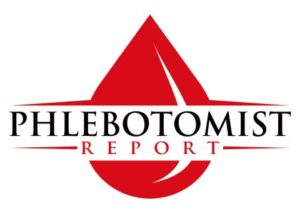So, you’re thinking about becoming a phlebotomist—or maybe you already are one. Either way, you probably know that this job isn’t just about drawing blood. Sure, that’s a huge part of it, but there’s so much more to being a great phlebotomist than just technical know-how.
In this role, you’re not only the person holding the needle—you’re also the friendly face that helps patients feel comfortable and the detail-oriented professional who ensures every sample gets where it needs to go. Let’s break down the key skills every phlebotomist needs to succeed and make a difference every day.
1. Technical Skills
Let’s start with the obvious: you’ve got to know how to do the job! Phlebotomists need to be pros at finding veins, handling needles, and minimizing discomfort for patients. It’s not just about technique, though—it’s about knowing how to use all the equipment, keeping everything sterile, and making sure samples are labeled and stored correctly. When you’re confident in your technical skills, patients trust you, and the whole process runs smoothly.
2. Attention to Detail
In phlebotomy, the details are everything. Imagine mixing up samples or forgetting to double-check a patient’s information—yikes! That’s why paying attention to even the smallest steps is so important. Whether you’re labeling vials or following protocols for storing blood, being precise keeps everyone safe and ensures accurate results.
3. Communication Skills
Let’s face it, getting blood drawn isn’t anyone’s favorite activity. That’s where good communication comes in. Being able to explain what’s happening in a calm, easy-to-understand way can make a big difference for nervous patients. And it’s not just about talking—you’ve got to listen, too. Understanding a patient’s concerns and reassuring them can make the whole experience much more pleasant.
4. Empathy and Compassion
Not everyone is thrilled about needles, and for some, it’s downright terrifying. As a phlebotomist, your empathy and compassion can go a long way in easing those fears. A kind word, a little patience, and maybe even a bit of humor can help patients relax. When people feel cared for, they’re more likely to trust you—and that makes your job a whole lot easier.
5. Patience
Let’s be real: not every patient is easy. Some might be scared, uncooperative, or just plain tough to work with. And then there are those tricky veins that seem impossible to find. That’s when patience becomes your best friend. Taking a deep breath, trying different techniques, and keeping a calm demeanor can help you handle even the most challenging situations with grace.
6. Professionalism
As a phlebotomist, you’re often the first person a patient interacts with in a healthcare setting. How you present yourself matters. From the way you dress to how you handle stressful situations, professionalism sets the tone. Patients trust you more when you’re punctual, respectful, and composed. Plus, being professional shows your colleagues that you’re someone they can rely on.
7. Physical Stamina
Phlebotomy isn’t exactly a desk job. You’re on your feet, moving around, and using your hands all day. Sometimes, you might even need to carry equipment or bend and stretch to reach a vein. Staying active outside of work and practicing good posture on the job can help you keep up with the physical demands. A little stamina goes a long way in making sure you can handle a busy day without burning out.
8. Time Management
Time is precious in healthcare. Patients don’t want to wait, and you don’t want to feel rushed. Good time management is all about finding a balance—getting everything done efficiently without sacrificing care. Keeping track of your tasks and prioritizing what needs to be done first can help you stay on top of your game, even during the busiest shifts.
9. Multitasking Ability
Let’s talk multitasking. In phlebotomy, you’re often doing several things at once: prepping equipment, calming a nervous patient, labeling samples, and making sure everything is properly documented. Staying organized and focused is key. Tools like checklists or a tidy workstation can help you juggle tasks without missing a beat. When you can multitask effectively, it keeps the whole process running smoothly.
10. Stress Management
Working in healthcare can be stressful—there’s no way around it. From tight schedules to challenging patients, there’s always something that can throw you off. That’s why stress management is so important. Taking a few deep breaths, stepping away for a moment when you can, or even leaning on your team for support can make a world of difference. Staying calm under pressure not only helps you but also reassures your patients and colleagues.
11. Adaptability
Change is part of the job in healthcare. New technologies, updated protocols, or unexpected situations—phlebotomists have to roll with it all. Being adaptable means staying open to learning and ready to adjust your approach when needed. Whether it’s using a new piece of equipment or finding a creative solution for a tough procedure, flexibility keeps you effective and on top of your game.
Final Thoughts
Phlebotomy is a job that’s equal parts skill and heart. It’s about mastering the technical stuff while connecting with people and staying cool under pressure. If you’re already in the field or considering it, focusing on these skills will not only make you great at your job but also help you make a real difference in your patients’ lives. After all, being a phlebotomist isn’t just about drawing blood—it’s about providing care that people can trust and appreciate.
